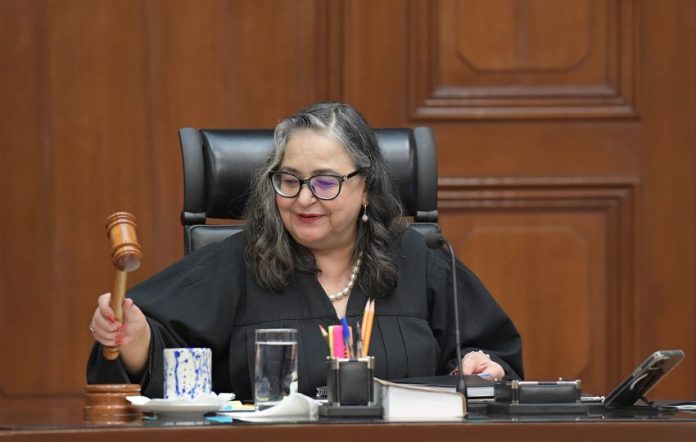The Senate on Wednesday received resignation letters from eight of Mexico’s 11 Supreme Court (SCJN) justices, Senate President Gerardo Fernández Noroña said.
The resignations, announced by Fernández on social media and subsequently confirmed by the SCJN, come after Mexico’s Congress last month approved a controversial judicial reform that allows Mexicans to directly elect all judges, including Supreme Court justices.
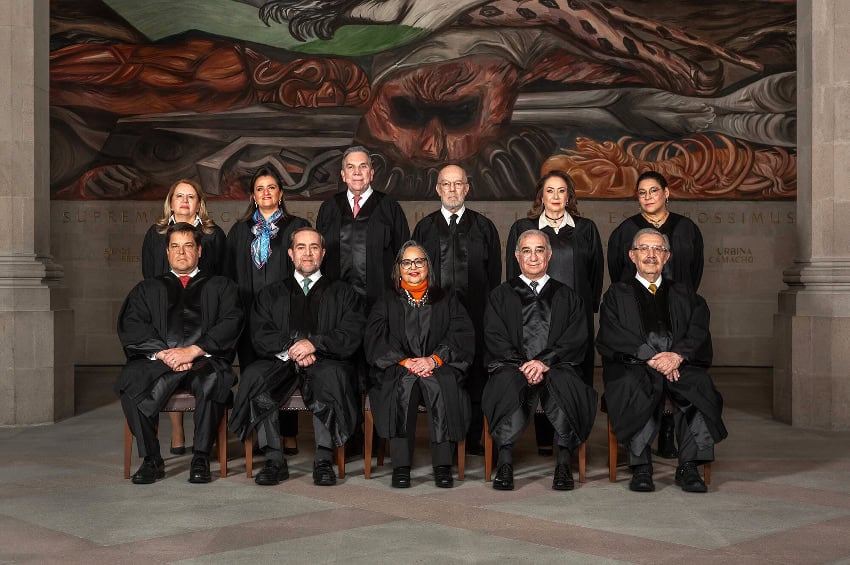
The first judicial elections are scheduled to be held next year.
In most cases, the justices’ resignations won’t take effect until August 31, 2025. Justices elected next year will subsequently assume their positions as Mexico’s highest-ranking judges.
Among the eight justices who tendered their resignations is Chief Justice Norma Piña.
She and six of her colleagues have decided not to contest the judicial elections scheduled to be held on June 1, 2025. The 15-year term of Justice Luis María Aguilar, one of the justices who sent a resignation letter to the Senate, concludes on Nov. 30. His resignation is largely symbolic given that it takes effect the day his term ends.
Piña indicated in her resignation letter that she doesn’t want to leave her position, but decided to resign in an “act of congruence and respect of the constitutional text that governs us today.”
The constitution was modified in September when former president Andrés Manuel López Obrador promulgated the judicial reform.
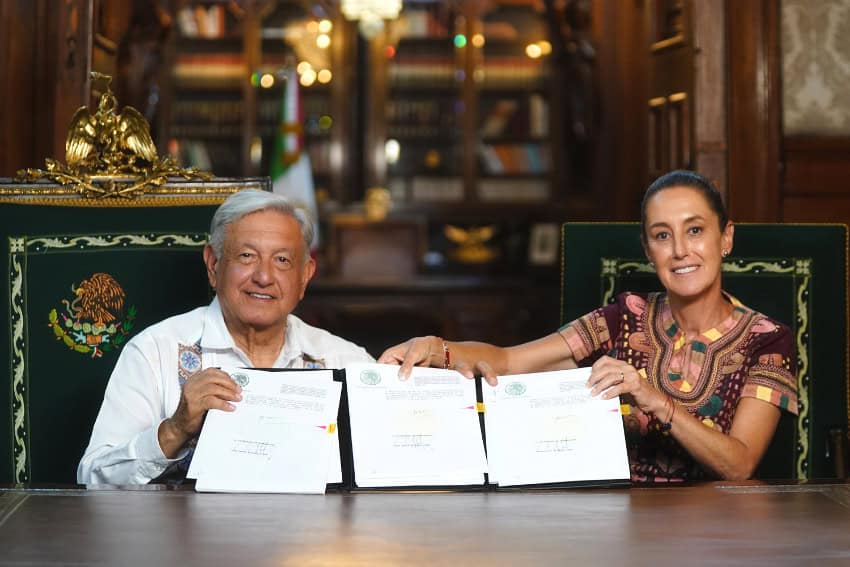
“We should have an authentic, true rule of law, not a crooked one,” López Obrador said at the time.
In addition to Piña, who was appointed to the SCJN in 2015 during the presidency of Enrique Peña Nieto, the justices who will resign from Mexico’s highest court are:
- Luis María Aguilar (appointed in 2009 during the presidency of Felipe Calderón)
- Jorge María Pardo (appointed in 2011 during Calderón’s presidency)
- Alberto Pérez Dayán (nominated by Calderón but assumed his position in 2012 during Peña Nieto’s presidency)
- Alfredo Gutiérrez Ortiz Mena (nominated by Calderón but assumed his position in 2012 during Peña Nieto’s presidency)
- Javier Laynez (appointed in 2015 during Peña Nieto’s presidency)
- Juan Luis González Alcántara Carrancá (appointed in 2018 during López Obrador’s presidency)
- Ana Margarita Ríos Farjat (appointed in 2019 during López Obrador’s presidency)
It was widely reported earlier this week that the justices listed above would resign. In effect, their decision is a protest against the judicial reform, which critics argue will lead to an erosion of the independence of Mexico’s judiciary.
Gutiérrez, who made critical remarks about the judicial reform at a recent Harvard University event, said in his resignation letter that he didn’t consider himself an “appropriate candidate for a position that depends on popular support.”
“While my career and abilities qualify me for the judiciary, in that job – in which I feel more than capable – the role is not to validate the will of the majority but rather to protect the rights of those who need them most,” he said.
Gutiérrez also said in his letter that “it is necessary to underscore that this resignation does not imply an implicit acceptance of the [judicial] reform’s constitutionality.”
More than 400 lower court judges have also said they won’t contest next year’s judicial elections.
Just three of the current Supreme Court justices, Lenia Batres, Yasmín Esquivel Mossa and Loretta Ortiz Ahlf, intend to contest the 2025 judicial elections.
Batres, Esquivel and Ortiz were all appointed during López Obrador’s 2018-2024 presidency, and, unlike the two other justices appointed in the previous term of government, are widely regarded as sympathetic to the ruling Morena party and its agenda.
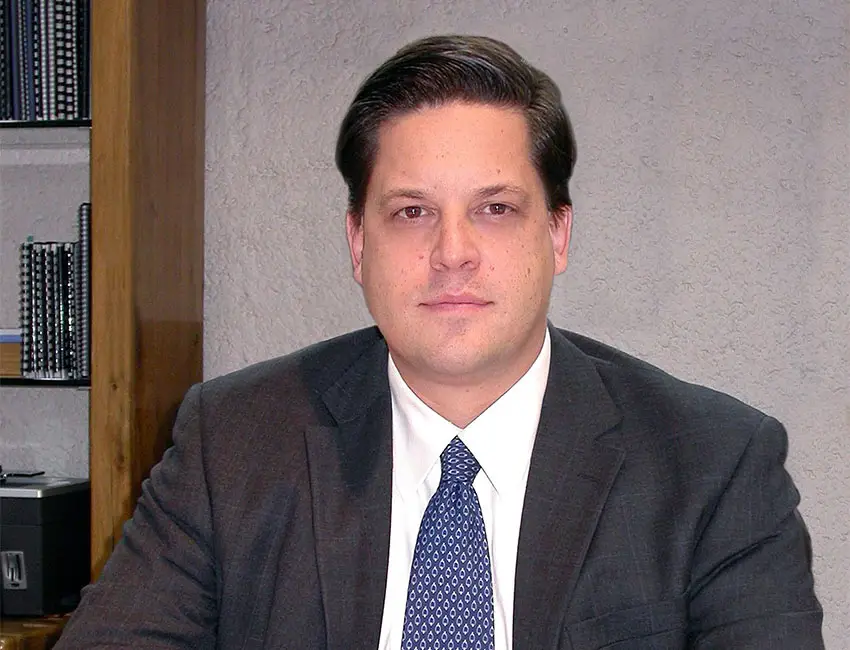
During López Obrador’s six-year term, the SCJN handed down a number of rulings against the previous government’s initiatives, including its electoral reform, its electricity reform and a reform that placed the National Guard under military control.
The former president argued that a judicial overhaul was necessary to ensure that Mexico’s courts are free of corruption and serve the interests of the majority of Mexican people, rather than an elite minority.
President Claudia Sheinbaum fully supports the reform, and shares López Obrador’s view that it is needed to rid the judiciary of corruption and other ills.
Fernández and Sheinbaum assert that justices’ motivation for resigning is money
Fernández Noroña, a Morena party senator, said Tuesday that the justices were resigning because they want to leave their positions with their “saddlebags full.”
They want to ensure that they receive all the retirement benefits, he said, referring to benefits that justices would normally only get if they completed their designated 15-year terms.
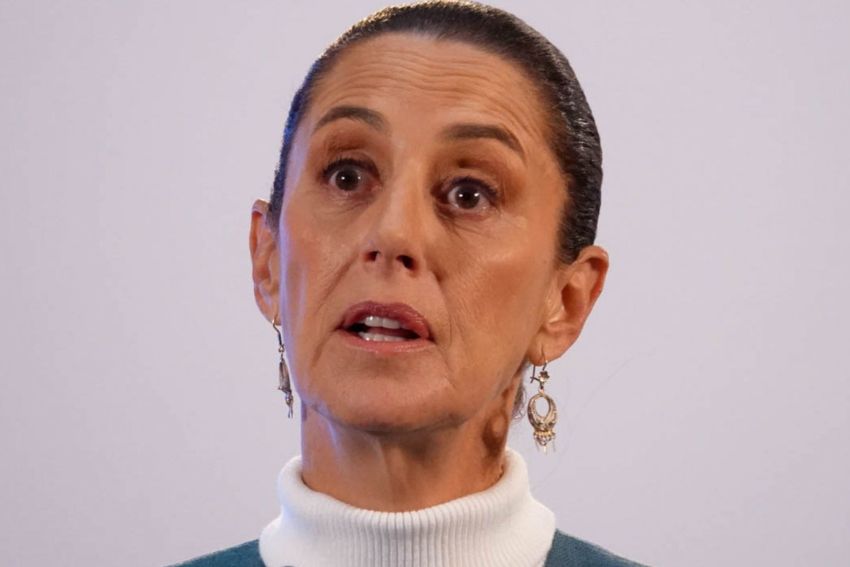
“The current constitution … establishes that if they don’t … [resign by Oct. 30], they won’t have the [full] retirement pension that is valid at this time,” Fernández said.
President Claudia Sheinbaum made the same argument on Tuesday.
“If they don’t present their resignation now, they won’t have the [same] retirement benefits. … It’s a lot of money,” she said.
Justice Margarita Ríos said Wednesday that she either wouldn’t accept the generous retirement benefits referred to by Fernández and Sheinbaum or donate the money to disadvantaged children.
The Milenio newspaper, citing unnamed Supreme Court sources, reported that the justices who submitted resignation letters to the Senate negotiated their departures with Senator Adán Augusto López, Morena’s leader in the upper house. They reportedly made the payment of their full retirement benefits a condition for tendering their resignations.
If the judges who resigned (excluding Aguilar) had chosen to compete in next year’s judicial elections, they would not only run the risk of not being elected – a distinct possibility given Morena’s popularity in Mexico – but also be worse off in their retirement.
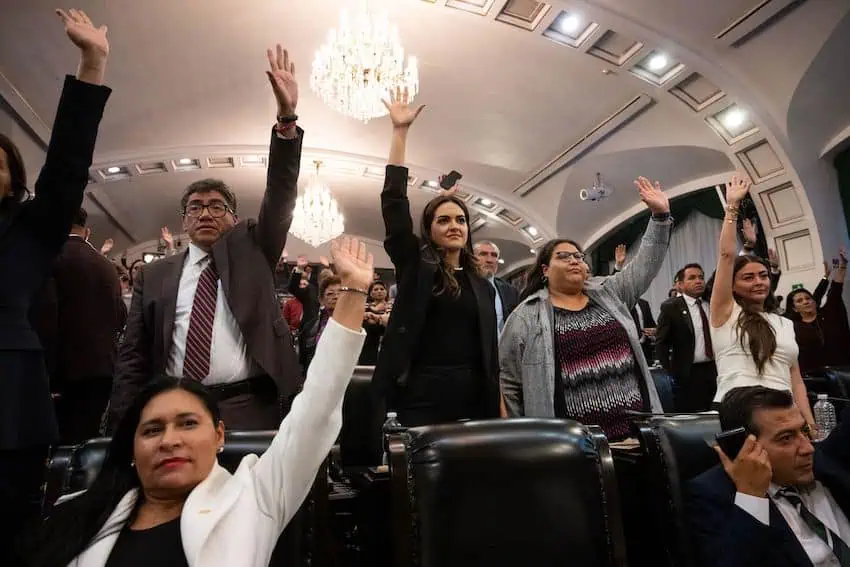
Could the Senate refuse to accept the resignations?
Senator Fernández said Tuesday that the Senate – which is dominated by Morena and its allies – might not accept the justices’ resignations.
“It’s our right to accept them or not. … We’ll wait and see what we’ll do,” he said.
Fernández indicated that a decision would be taken after the Supreme Court makes a ruling on a proposal from Justice González Alcántara Carrancá to invalidate the provision in the judicial reform that allows all Mexican judges and magistrates to be elected. Despite the Senate president’s remarks, it would appear unlikely that the Senate won’t accept the resignations.
Under González’s proposal – which will be considered by the SCJN next Tuesday – only Supreme Court justices would be elected at judicial elections.
Morena has succeeded in getting a so-called “constitutional supremacy” bill through Congress that would prevent legal challenges against constitutional reforms that have already been approved by federal lawmakers and ratified by state legislatures. The bill was approved by the Senate last week and passed by the Chamber of Deputies today.
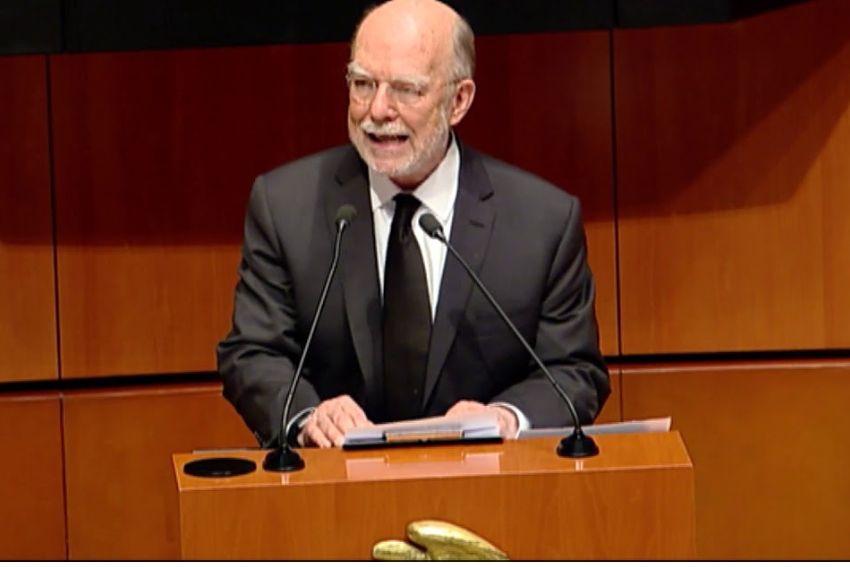
The main motivation for the legislation was a federal judge’s order for the decree promulgating the judicial reform to be removed from the government’s official gazette.
Sheinbaum didn’t comply with the order, arguing that the judge didn’t have the authority to issue it.
The president – who in her first month in office has shown herself to be at least equally as fierce as López Obrador in her criticism of Mexico’s current judiciary – asserted last week that the judicial reform will be an “example to the world” in how to create a robust judiciary.
“If [there is] something we’re doing in Mexico that is going to be an example to the world, … [it is] the election of the judicial power. It will be an example because it’s the people choosing their judges, magistrates and Supreme Court justices,” Sheinbaum said.
Among the critics of the reform is United States Ambassador to Mexico Ken Salazar.
“I believe popular direct election of judges is a major risk to the functioning of Mexico’s democracy,” he said in August, earning himself rebukes from both López Obrador and Sheinbaum.
The president has pointed out that judges are elected in many states of the U.S., although federal judges and Supreme Court justices are nominated by the U.S. president and confirmed by the United States Senate.
With reports from Reforma, Milenio, Animal Político, El Financiero, El Universal and El Economista
